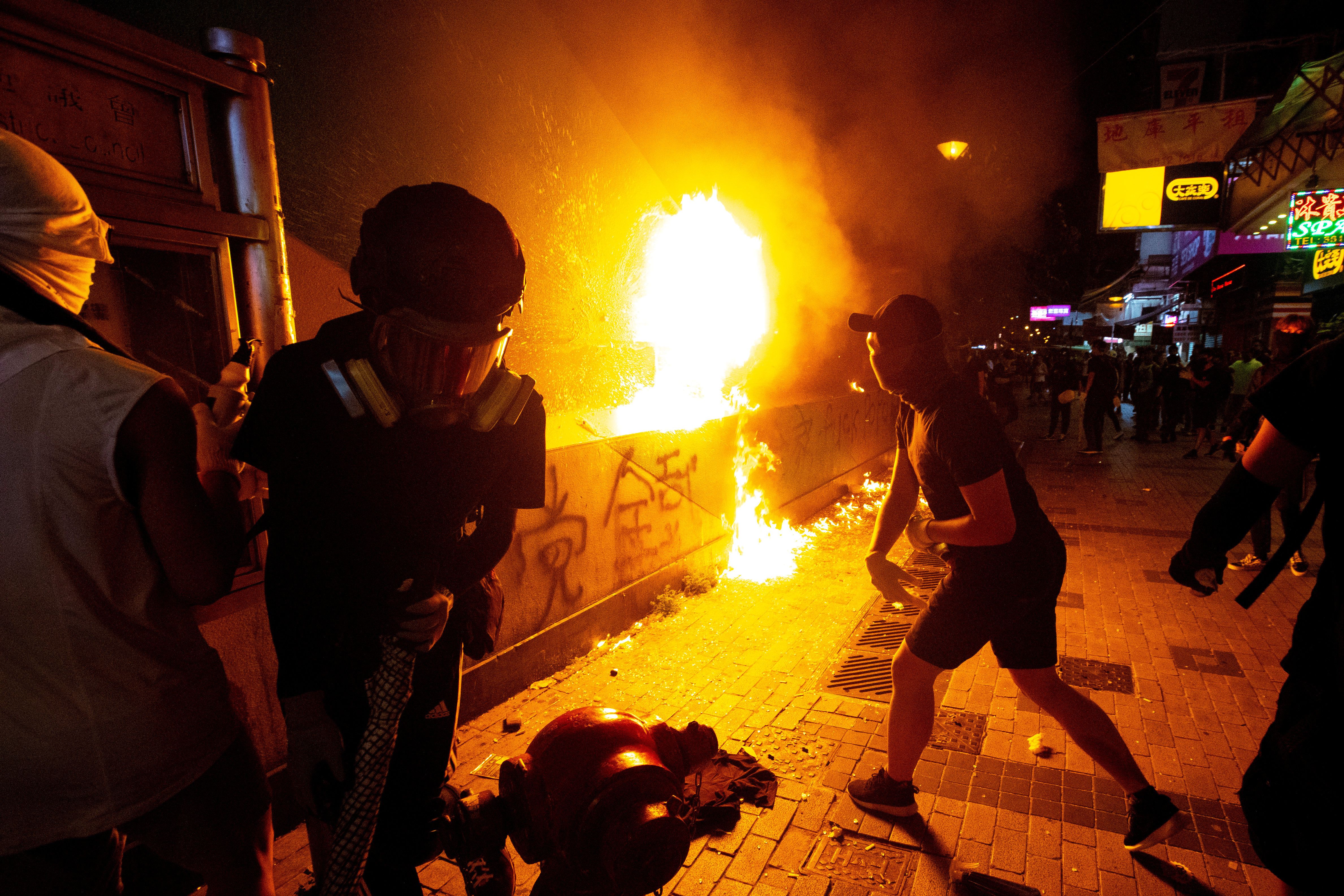Bullets in Hong Kong — For the first time since Hong Kong's democracy protests began 4 months ago, a participant in the demonstrations has been shot with live ammunition. The severity of clashes between lightly armed protesters and the police has grown in recent months, but violence spiked sharply yesterday as tens of thousands of protesters marched in a "Day of Grief" meant to contrast with Beijing's lavish observance of the 70th anniversary of communist China's founding. Until now, the authorities in Hong Kong have used water cannons, truncheons, and tear gas rather than bullets, as the government weighed the risks of cracking down more forcefully. Now that lethal force has been used, we are watching to see if all sides step back from the brink, or dive over the edge into a much more serious confrontation. Can't lie: we're worried.
Who's running Peru? After Peruvian president Martin Vizcarra dissolved Congress yesterday in a last ditch bid to hold fresh elections, lawmakers refused to leave the building and instead appointed Vice President Mercedes Araoz as acting head of state. Vizcarra, who took office in 2018 when his predecessor resigned amid a sprawling graft scandal, has won popular support by tackling corruption. But his opponents, who control Congress, have blocked some of his anti-graft measures and resisted calls for fresh elections. Perhaps it's only a coincidence that the opposition leader is in jail facing corruption allegations of her own. The legality of Vizcarra's move -- which his opponents say is a coup that brings back bad memories of Peru's dictatorship -- will be settled by the courts. But Peru, one of South America's fastest growing economies, now has a more immediate problem: who runs the place? Vizcarra has the loyalty of the armed forces, but the standoff with Congress is unresolved and protesters are in the streets.
Boris Johnson's disappearing runway — The UK prime minister is preparing to unveil the country's latest formal proposal for a new Brexit deal on Wednesday, and it doesn't look promising. A leaked UK proposal for customs checks located away from the physical border between Ireland and Northern Ireland was promptly slapped down by leading Irish politicians as a "non-starter" after details emerged late on Monday. Johnson says the critics haven't got his plan quite right, but with time running out ahead of the 31 October deadline to leave the EU, there aren't many more opportunities left to find a solution that can a) deliver the Brexit Boris has promised, b) satisfy the EU and c) get through a skeptical Parliament. We may have a much clearer idea by the end of this week whether a deal is possible or whether the Brexit plane is careening off the end of the tarmac with "no deal".
